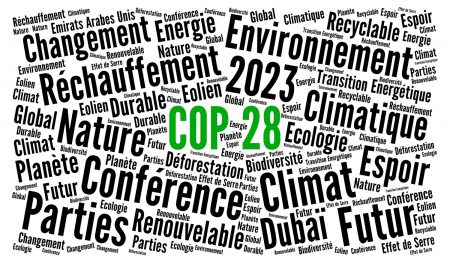私的京都議定書始末記(その11)
-APEC、東アジアサミットでの議論-
有馬 純
国際環境経済研究所主席研究員、東京大学公共政策大学院特任教授
ハイリゲンダムサミットと同様、APEC首脳声明にもポスト2012年の枠組みに関する言及がある。その該当部分を引用する。
Future International Action
We reaffirm our commitment to the UNFCCC. Based on UNFCCC principles, we believe the following must underpin an ①equitable and effective post-2012 international climate change agreement.
Comprehensiveness
We need concerted international action with ②all economies contributing to shared global goals in ways that are equitable, environmentally and economically effective.
Respect for different domestic circumstances and capacities
The future international climate change arrangement needs to reflect differences in economic and social conditions among economies and ③be consistent with our common but differentiated responsibilities and respective capabilities.
Flexibility
To ensure a comprehensive global effort, we support a flexible arrangement that recognizes diverse approaches, and supports practical actions and international co-operation across a broad range of areas relevant to climate change. We support domestic actions which ④make measurable contributions to a shared global goal, and underline the importance of the effective operation of market mechanisms.
長々と英文を引用してしまって恐縮だが、気候変動交渉に限らず、国際交渉では合意文書の表現振りをめぐって熾烈な争いが演じられるということを説明するためのもので、暫くお付き合いいただきたい。下線部①は将来枠組みの基本的性格に関するもので、「次期枠組みは京都議定書のように先進国だけが義務を負うものではなく、より幅広い国が削減努力をすることが effective」 というのが議長国豪州の思いだったのだろうが、そこに中国を初めとする途上国がequitable を入れることを主張した。気候変動交渉の世界で equity もしくは equitable という表現を使う場合、「先進国はこれまで地球を汚してきたのだし、途上国はこれから発展する権利があるのだから、先進国が率先して義務を負うのが公平である」という意味を持つ。
下線部②も同様で、「全ての国が environmentally and economically effectiveな形で、共有されたグローバルな目標に向けて貢献する」という豪、米、日、加等の先進国の考え方に対し、equitable を挿入することにより、押し返した形だ。
下線部③の「common but differentiated responsibilities and respective capabilities」は、途上国が気候変動交渉で数え切れないほど繰り返す文言で、最初の4語の頭文字をとってCBDRとも言う。要するに「自分たちと先進国とでは責任の負い方が違う」ということで、先進国だけに義務を負わせる論拠として使われている。下記に引用するハイリゲンダムサミットのコミュニケと比較していただきたい。そこではCBDRや先進国のリーダーシップをパラ前段で示しつつも、「We recognize, however, 」最後の1文を加えることで、全ての国の参加の必要性を強調する構成となっていた。更に「全ての主要排出国を含む包括的なポスト2012合意(ポスト京都合意)を達成するため」と将来枠組みのビジョンも明記していた。
We stress that further action should be based on the UNFCCC principle of common but differentiated responsibilities and respective capabilities. We reaffirm, as G8 leaders, our responsibility to act. We acknowledge the continuing leadership role that developed economies have to play in any future climate change efforts to reduce global emissions, so that all countries undertake effective climate commitments tailored to their particular situations. We recognize, however, that the efforts of developed economies will not be sufficient and that new approaches for contributions by other countries are needed.
We are committed to moving forward in that forum and call on all parties to actively and constructively participate in the UN Climate Change Conference in Indonesia in December 2007 with a view to achieving a comprehensive post-2012 agreement (post Kyoto-agreement) that should include all major emitters.
翻って上記のAPECバージョン「The future international climate change arrangement needs to reflect differences in economic and social conditions among economies and be consistent with our common but differentiated responsibilities and respective capabilities」を見ると、最後にCBDRがでんと陣取って睨みをきかせる形になっており、ハイリゲンダムバージョンよりも途上国の立場が色濃く出た形だ。
下線部④は「共有されたグローバルな目標に対する計測可能な貢献」というもので、ここでは先進国の考え方が色濃く反映された表現だ。特に measurable という表現は、これらの会合の直後である2007年12月のCOP13(バリ)でも重要な役割を演ずる。
また、APEC首脳声明では「共有されたグローバルな目標」について以下のような記述となった。
We agree to work to achieve a common understanding on a long-term aspirational global emissions reduction goal to pave the way for an effective post 2012 international arrangement. We appreciate the efforts of Japan and Canada in proposing a long-term global goal.
安倍総理が提案した2050年半減という具体的な数字には触れず、「グローバルな長期目標を提案した日本とカナダの努力を多とする」でとどめた形だ。ハイリゲンダムサミットで ”We will consider seriously the decisions made by the European Union, Canada and Japan which include at least a halving of global emissions by 2050” と半減目標を明記したのと比較すれば後退した表現となった。中国等が、「特定国の提案内容をいちいち言及することは不要」との理由で頑強に反対したためだった。その実は地球全体の目標は途上国にも及ぶため、これを忌避したかったということだろう。
このように先進国、途上国が両方参加するAPECというフォーラムの性格を反映し、気候変動については、ハイリゲンダムサミットで出た先進国色の強いラインを中国等の途上国が押し返す構図となった。それがより顕著に出たのが11月にシンガポールで開催された東アジアサミット首脳会合である。


















